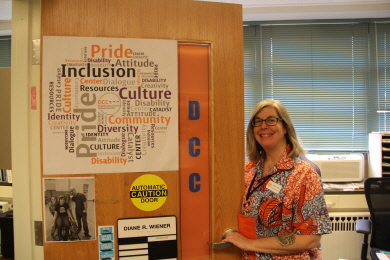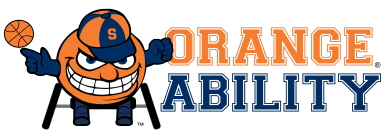Is abiding by the disability laws enough to guarantee a fully inclusive campus?
Members of the Beyond Compliance Coordinating Committee (BCCC) responded negatively to the question, asserting that compliance with the law is merely a starting point for complete inclusion.

Comprised of 10 undergraduate and graduate students, the BCCC is a prominent advocacy group that addresses universities to move “beyond compliance” and introduce new philosophies and approaches.
“Americans with Disabilities Act (ADA) and other related laws for disabled people are not enough to create a fully inclusive campus,” said Justin Freedman, the president of the BCCC.
Recently, members of BCCC have continuously appealed to the school authority to have a full-time ADA coordinator on campus. An ADA coordinator helps to make sure the university is ADA compliant. For example, if one holds an event on campus, an ADA coordinator provides information on ways to make it accessible to all.
“Having an ADA coordinator on campus is not required by law, but the coordinator is an important human resource on campus that students, faculty and staff can utilize to enhance inclusion,” said Freedman and Song Yo-sung, the vice-president of the BCCC. “After our constant efforts, an ADA coordinator will finally be joining our university starting this fall semester.”
For the next step, the BCCC is now working to provide inclusive movie screening events for students with visual and hearing impairments by providing captioning services.
“If an organizer does not provide any service for students with visual and hearing impairments, it implies that students with disabilities are basically not invited,” Freedman reasoned. “That should not happen on our inclusive campus.”

Disability Cultural Center views disability as culture
Posters that read “Label jars… not people” and “Not being able to speak is not the same as not having anything to say,” are hung on the walls of the Disability Cultural Center (DCC). These posters were used for disability rights movements that SU organized or took part in since the 1980s, highlighting the efforts of the DCC to raise awareness in disability.
Being the very first cultural center on disability issues with a full-time staff, the DCC is housed in the Division of Student Affairs, not in the Office of Disability Services, an office that arranges accommodations for those in need.
“This signifies that the DCC is very distinct from the typical view that disability is about providing accommodations,” said Diane Wiener, the director of the DCC. “Also, our events are not dedicated to specific groups of students, but for all members on campus.”
Viewing disability from a cultural aspect starts from a premise that disability is part of our cultural experience. Wiener claims that disability has cultural aspects and these aspects can be exhibited through diverse cultural experiences, ranging from sports, comics and poetry to creative writing and religion.
One of the most influential events that the DCC coordinates is “Cripping the Comic Con.” As the only comic con related to disability issues, it is a symposium that organizes discussions about the representations of disability within mainstream popular cultures, particularly in comic books, graphic novels and manga.
“We created a team of super heroes with intellectual and developmental disabilities to raise one question: why are most superheroes white men without disabilities, despite the fact that almost 10 percent of the world’s population have some sort of disability?” Wiener explained. “Cripping the Comic Con is a compelling example that shows how culture and disability can have intersections.”
Furthermore, the DCC and its affiliated student organization, the Disability Student Union (DSU), annually hold an accessible athletics event called OrangeAbility. They organize wheelchair basketball, sled hockey and several other sports that some would not imagine people with physical disabilities could play.
“We created a new version of Otto the Orange, SU’s mascot, using an athletic wheelchair and spinning a basketball as the mascot of our event, arguing that an ‘official’ mascot should not be in a wheelchair,” said Christy Kalebic, the president of the DSU. “There were harsh criticisms from other students who opposed the using Otto. After continuous appeals, we were finally given permission to use it, which would be unimaginable in other universities where disability is not yet fully regarded as one facet of diversity.”
Park Kyoung-eun
kathypark226@ewhain.net

